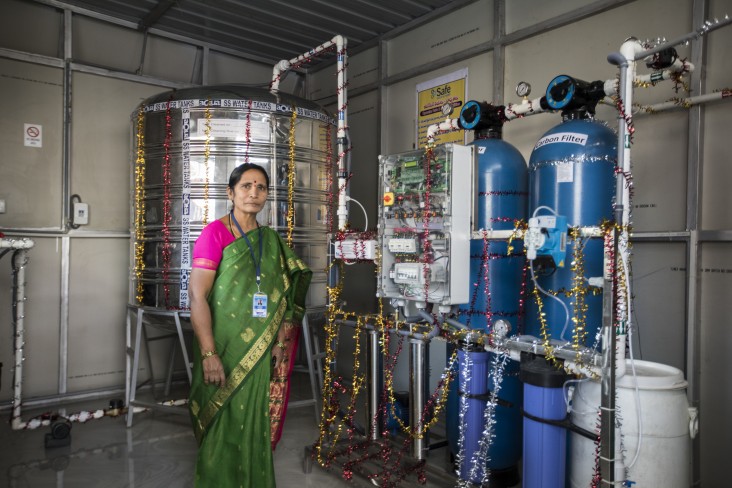India
- History
- Our Work
- Transforming Development Through Innovation & Partnership
- U.S.-India Triangular Cooperation
- Partnership for Energy Access and Security
- Partnership for Sustainable Forests in India
- Partnerships for Health
- Partnership for Education
- Partnership for Water Sanitation and Hygiene (WASH)
- Partnership for Food Security
- Partnership for Gender Equality
- Investing in Afghanistan
- Foreign Assistance Data
- Newsroom
- Newsletters and Fact Sheets
- Speeches
- Resources For Implementing Partners (RFIP)
- Careers
- Partnership Opportunities
- Success Stories
Speeches Shim

The world’s largest democracy and second most populous country, India is a unique mix of tradition and innovation. While women and men, girls and boys are today competing in every sphere, the success stories of equality and empowerment remain selective and few. Globally, India ranks fifth for the most skewed ratio of boys to girls at birth, and, on average, 26 crimes are committed against women and girls every hour across the country.
USAID works with the Government of India, donors, philanthropists, and the corporate sector to promote programs that enable women, men, girls, boys, and transgender persons to address societal inequalities and provide equal access to health care, water and sanitation, education, nutrition, microfinance, clean energy, and sustainable livelihoods.
USAID/INDIA PROGRAMS:
EXPANDING ACCESS TO HEALTH CARE, RESPONDING TO GENDER-BASED VIOLENCE AND EMPOWERING ADOLESCENT GIRLS: USAID and its partners implement interventions that enable adolescents and women, including women with disabilities, gain better access to health and family planning services, education, and livelihoods. USAID is also working to reduce domestic/intimate-partner violence against women and girls by sensitizing young people about harmful gender norms and providing avenues to mitigate them. Our various private-sector partnerships are bringing affordable health care to more than 10 million poor living in India’s cities; generating self-employment opportunities for approximately 100,000 women in primary health care through new technologies, small business loans, and social franchises; and reaching over five million adolescents by forming a learning community to create a more equitable society in India.
IMPROVING FOOD SECURITY: USAID’s agriculture projects in India, Asia and Africa develop gender-inclusive agricultural practices to facilitate equitable access to food, improve nutrition, as well as to promote technologically appropriate farming practices. By piloting innovative techniques, developing entrepreneurship skills, and strengthening training institutions, USAID has helped smallholder farmers boost their incomes and significantly increased women’s and men's participation in their region’s agricultural sector.
DIVERSIFYING CLEAN ENERGY: USAID focuses on increasing women’s participation in the clean energy sector—traditionally a stronghold of men. USAID is improving the sector’s human resources by ensuring a minimum of 25 percent female participation in training, executive exchanges, and study trips. USAID is establishing a clean power women’s leadership forum to provide internship and research opportunities for women engineers and to launch a women’s empowerment and gender sensitization program for system operators across India.
INCREASING ACCESS TO EDUCATION, WATER, AND SANITATION: Educating girls and boys is the most powerful and effective way to address global poverty and build equality. That is why USAID engages with local partners to prepare gender-sensitive educational materials and trains teachers to provide opportunities for girls and boys to practice leadership both in and out of school. As a key partner in the Government of India’s national flagship programs, including the Swacch Bharat Mission (Clean India Campaign), USAID ensures that sanitation solutions address gender-specific requirements with additional focus on menstrual hygiene. Addressing this component in schools is also key to ensuring that girls remain in the education system.
ENDING TUBERCULOSIS: In partnership with local health organizations, USAID has developed gender-responsive tuberculosis programming, and disseminates gender-sensitive messages and national guidance to build the capacities of health workers to better understand and respond to gender issues associated with TB transmission, treatment and stigma.
PROMOTING WOMEN's EMPOWERMENT: USAID, with public and private-sector partners, is facilitating the use of appropriate technology to encourage greater involvement from women. With our partner, WorldFish, rural women are improving their livelihoods by using innovative techniques to increase the supply and affordability of fish and fish products. USAID has also partnered with GE Healthcare and 3M to train women health workers to be health entrepreneurs, offering new medical technologies to their communities.
Achievements
- Over the past 3 years, more than 400,000 women accessed loans to buy clean energy solutions for their homes through USAID support to microfinance institutions and clean energy entrepreneurs.
- USAID helped 3,600 women-led poor and marginalized families in a tribal area of Odisha boost their incomes by 40 percent with training in agricultural and non-timber forest product sales.
- USAID renovated WASH facilities in 60 schools over the past 2 years, benefitting 17,995 children (57 percent of them girls).


Comment
Make a general inquiry or suggest an improvement.